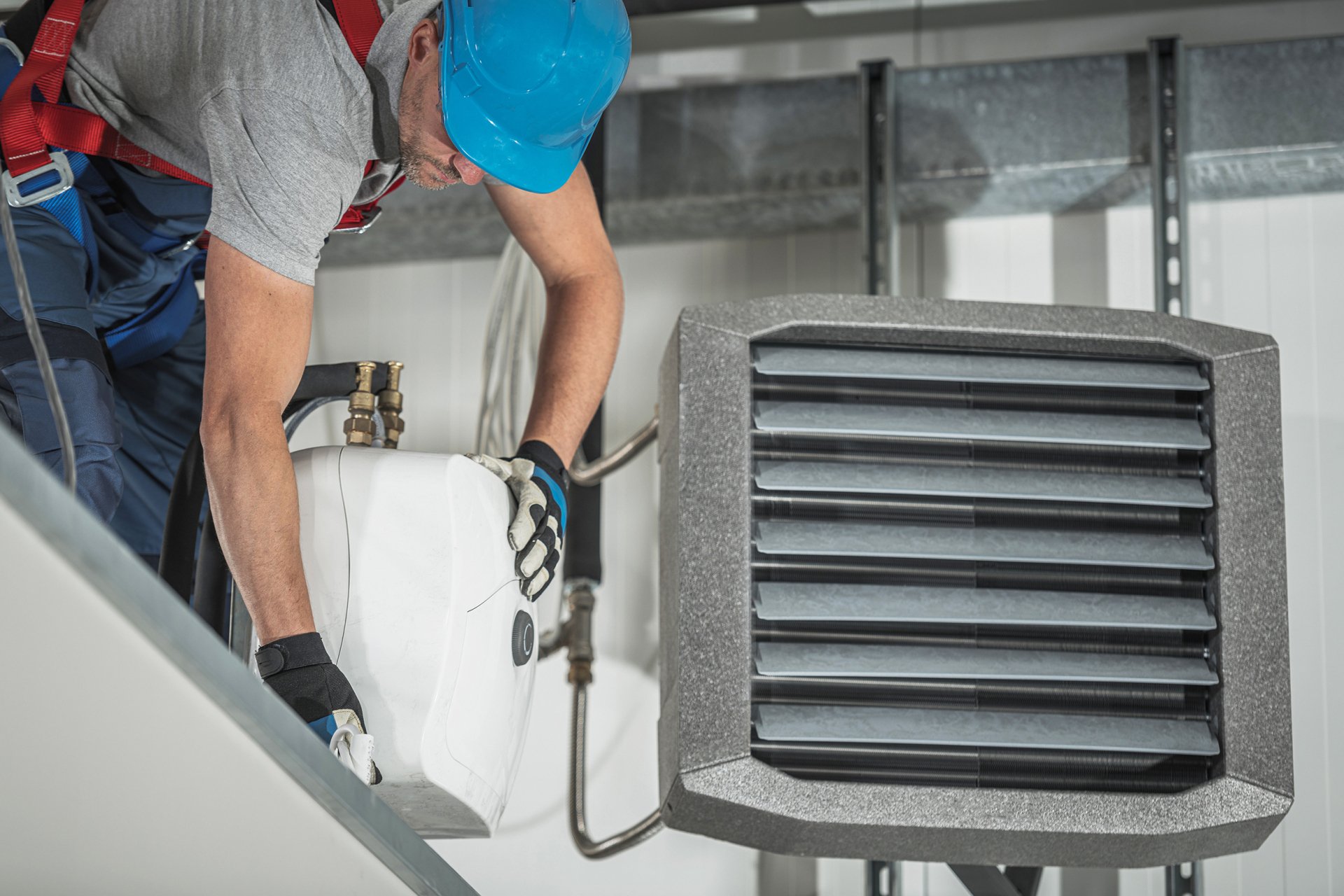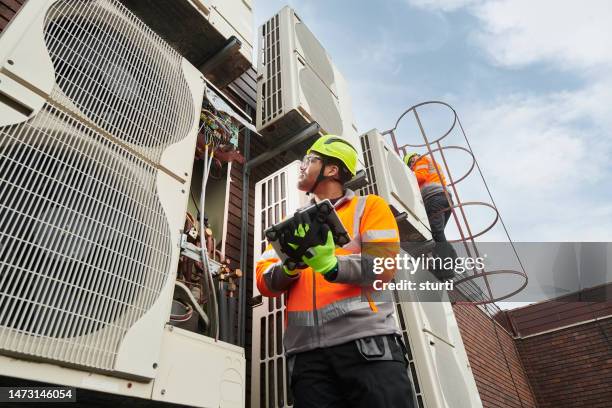Choosing the Right Time for furnace replacement
Choosing the Right Time for furnace replacement
Blog Article
Choosing Between a Heatpump and Furnace: Secret Factors To Consider for Your Cooling And Heating Demands
When examining home heating options for cooling and heating requires, the choice in between a warmth pump and a heater can be intricate. Each system uses unique benefits customized to specific environments and power performance objectives. Understanding these differences is necessary for making an informed option. Trick elements such as installment costs and environmental impact better complicate the choice procedure. Which option truly straightens with one's comfort and sustainability preferences? The adhering to sections will discover these considerations carefully.
Understanding Heat Pumps: How They Function and Their Advantages
While several home owners think about numerous home heating alternatives, understanding just how warm pumps function and their benefits can significantly affect their decision. Heatpump run by transferring heat instead than creating it. In the winter, they remove warm from the outdoors air or ground and transfer it indoors, while in the summer season, they reverse this process, cooling down the home by getting rid of warm outside. This dual functionality makes them versatile for year-round climate control.One of the main benefits of warmth pumps is their energy efficiency. They use significantly less electricity contrasted to standard heating systems, possibly resulting in reduced utility expenses (heat pump installation ooltewah tn). Furthermore, warm pumps have a smaller carbon impact, making them an eco-friendly option. They also need less maintenance than traditional systems, adding to lasting cost financial savings. On the whole, comprehending the mechanics and advantages of warmth pumps can help house owners make educated decisions concerning their heating and cooling needs
Checking Out Heaters: Kinds, Operation, and Advantages
Heating systems are available in various kinds, including gas, electric, and oil versions, each with distinct operational devices. Recognizing these distinctions is crucial, as they influence effectiveness and heating performance. In addition, heating systems supply many benefits, such as regular heat result and integrity in chillier environments.
Sorts of Heaters
Home heating systems can differ considerably in layout and operation, with heating systems being a popular option amongst homeowners. There are a number of kinds of furnaces, each using various fuel sources and modern technologies. Gas heating systems are common, leveraging gas to produce warm successfully. Electric furnaces, on the various other hand, make use of electrical resistance to create heat, often preferred for their straightforward installation. Oil heaters, while much less common, work in locations with minimal gas gain access to (heat pump replacement ooltewah tn). Additionally, condensing heating systems optimize power efficiency by recycling and capturing exhaust gases. Each kind runs via a system of warm exchangers and ductwork to distribute cozy air throughout a home. Understanding the distinctions in between these heater types is crucial for informed heating and cooling decisions
Advantages of Furnaces
For house owners seeking trustworthy warmth throughout cool months, the benefits of heaters are substantial. Furnaces provide consistent heating, making sure even temperature levels throughout the home. They are specifically effective in extreme chilly, often outmatching heatpump in cold problems. Numerous types, consisting of gas, electrical, and oil furnaces, supply versatility to meet varied needs and preferences.Furnaces additionally have a tendency to have reduced preliminary installation expenses contrasted to warm pumps, making them a more obtainable alternative for lots of. Their robust style adds to a longer life expectancy, with many devices lasting over 15 years with proper maintenance. Furthermore, modern-day furnaces are commonly furnished with sophisticated modern technology for boosted efficiency, which can lead to decreased power bills. In general, heating systems stay a reputable selection for effective home heating.

Power Effectiveness: Contrasting Warm Pumps and Furnaces
When comparing energy performance between warmth pumps and heaters, the Seasonal Power Performance Proportion (SEER) plays a vital duty in establishing efficiency. Furthermore, an operational cost evaluation discloses the long-term financial ramifications of each system. Comprehending these aspects can direct home owners in making informed decisions regarding their home heating services.
Seasonal Energy Efficiency Proportion
Power effectiveness plays an essential function in the decision-making procedure between heat pumps and furnaces, especially when considering the Seasonal Power Efficiency Proportion (SEER) This metric actions the cooling performance of warmth pumps over a whole cooling season, supplying a standard way to assess efficiency. Greater SEER rankings show higher power efficiency, converting to lower power consumption and decreased energy bills. On the other hand, heating systems are normally examined using the Annual Fuel Usage Effectiveness (AFUE) score, which shows heating performance. When contrasting these two systems, house owners need to prioritize SEER ratings for heatpump, as they straight effect overall energy cost savings and environmental sustainability. A detailed understanding of SEER can especially influence the lasting fulfillment and cost-effectiveness of the picked a/c remedy.
Functional Expense Evaluation
Comprehending the functional costs related to warmth pumps and heaters is vital for home owners evaluating their alternatives. Heatpump usually provide higher energy performance, transforming electric energy into warm with marginal waste. This causes lower regular monthly energy costs, particularly in modest climates. Alternatively, standard heating systems, particularly gas models, may have reduced in advance expenses but can incur greater operational expenses with time due to fuel rates and performance ratings.Moreover, warm pumps can operate as both heating and cooling systems, potentially lowering the need for different cooling and heating devices. While initial financial investments for warmth pumps might be higher, their long-lasting cost savings in energy efficiency can make them an extra cost-effective choice for many households. Cautious analysis of local energy rates is important to identify the very best option.
Installation Prices: What to Anticipate for Each Heating Unit
Installment costs for home heating systems can vary significantly in between heat pumps and heating systems, influencing property owners' choices. Warmth pumps normally have higher upfront installation prices, generally varying from $3,500 to $8,000, depending on the unit dimension and complexity of installment. This consists of the exterior device, interior handling system, and necessary ductwork modifications. On the other hand, heating systems often tend to have lower first costs, averaging between $2,500 and $6,000, which can be appealing for budget-conscious homeowners. Nonetheless, installation costs can raise if considerable ductwork is required.Moreover, the option of fuel kind for furnaces-- gas, gas, or electric-- can also influence setup costs. While heatpump offer energy performance, their preliminary investment may hinder some buyers. Eventually, examining setup prices alongside lasting savings and effectiveness will certainly assist home owners in making notified choices regarding their home heating systems.
Climate Factors To Consider: Which System Does Much Better in Your Area
How do environment problems affect the effectiveness of furnace? The performance of warmth pumps and heating systems can differ substantially depending on the neighborhood climate. In modest environments, heat pumps succeed by efficiently transferring warm from the outdoors air, making them an energy-saving option. Their efficiency decreases in extremely chilly temperature levels, where they might struggle to extract adequate warm. On the other hand, heaters, especially gas versions, give reputable and regular heat despite exterior conditions, making them more effective in chillier regions.In areas that experience milder winters months, warmth pumps can run efficiently year-round, giving both heating & cooling. On the other hand, regions with severe winters months usually take advantage of the toughness of furnaces. Eventually, understanding the neighborhood environment is necessary when determining in between a warmth pump and a furnace, as it straight influences their operational efficiency and my latest blog post total efficiency.
Maintenance Demands: Long-Term Look After Warmth Pumps vs. Furnaces
While both heat pumps and heaters need normal maintenance to assure peak efficiency, their specific requirements and treatment routines vary significantly. Heating systems usually need less regular focus, with yearly inspections being adequate to check for gas leakages, clean filters, and analyze total functionality. Their less complex design frequently permits uncomplicated repairs.In contrast, heatpump require biannual upkeep because of their twin role in heating & cooling. This includes cleaning coils, inspecting refrigerant levels, and ensuring that both the interior and outside systems work at their ideal. In addition, warmth pump maintenance commonly involves even more complex parts, making specialist servicing essential.Neglecting upkeep can bring about diminished performance and enhanced power expenses for both systems. Ultimately, homeowners should consider these long-lasting treatment requirements when picking between a warmth pump and a furnace, as positive maintenance can expand the lifespan and efficiency of either system considerably.
Ecological Impact: Choosing a Lasting Heating Choice
The environmental influence of furnace is an important assessment for house owners looking for lasting alternatives. Heatpump are typically more energy-efficient than conventional heaters, as they move heat instead than create it, significantly decreasing carbon exhausts. By making use of renewable power resources, such as air-source or geothermal heatpump, home owners can better decrease their eco-friendly footprint.On the other hand, natural gas heating systems emit greenhouse gases and add to air pollution, though they often provide greater heat output. Improvements in innovation have actually led to the advancement of high-efficiency heaters that decrease emissions.Ultimately, picking a home heating system involves weighing effectiveness against ecological impact. Homeowners are motivated to reflect on regional power resources and incentives for eco-friendly systems, guaranteeing a selection that straightens with both individual comfort and environmental duty. The choice affects not just immediate comfort yet likewise lasting sustainability and ecological wellness.
Often Asked Inquiries
How Much Time Do Heat Pumps and Furnaces Usually Last?
The life expectancy of heat pumps typically varies from 15 to twenty years, while heaters can last between 15 to thirty years. Normal upkeep considerably affects their durability and efficiency in supplying heating options.
Can I Use a Warmth Pump in Extremely Cold Climates?
Heatpump can operate in very cool environments, but their efficiency diminishes as temperature levels decline. In such conditions, extra heating resources might be required to keep comfy interior temperature levels and ensure peak efficiency.

What Is the Sound Level of Warm Pumps Versus Furnaces?
The noise degrees of warm pumps and heaters differ significantly. Generally, heatpump run even more silently than conventional heating systems, making them more suitable for those conscious seem, while heating systems might produce louder operational noises during heating cycles.
Are Warm Pumps Suitable for Both Heating & Cooling?
Warmth pumps are without a doubt ideal for both heating & cooling (ductless mini splits). They operate by transferring warm, providing efficient temperature control year-round, making them a versatile choice for home owners looking for an all-in-one heating and cooling solution
What Size Furnace Do I Required for My Home?
Figuring out the ideal size furnace for a home needs examining variables such as square video footage, insulation top quality, regional environment, and the home's layout. Consulting a specialist can assure a precise analysis and optimal convenience. Warm pumps typically supply higher energy performance, converting electrical power into warmth with very little check it out waste. In modest environments, warmth pumps stand out by successfully transferring warm from the outside air, making them an energy-saving alternative. Alternatively, furnaces, particularly gas designs, provide reputable and consistent heat regardless of outdoor problems, making them blog more effective in colder regions.In locations that experience milder winters months, warmth pumps can run properly year-round, supplying both heating and cooling. Warm pumps are generally much more energy-efficient than standard furnaces, as they move heat instead than generate it, greatly minimizing carbon exhausts. By making use of sustainable energy sources, such as geothermal or air-source heat pumps, home owners can additionally decrease their environmental footprint.On the other hand, natural gas heating systems discharge greenhouse gases and add to air contamination, though they commonly offer higher heat outcome.
Report this page